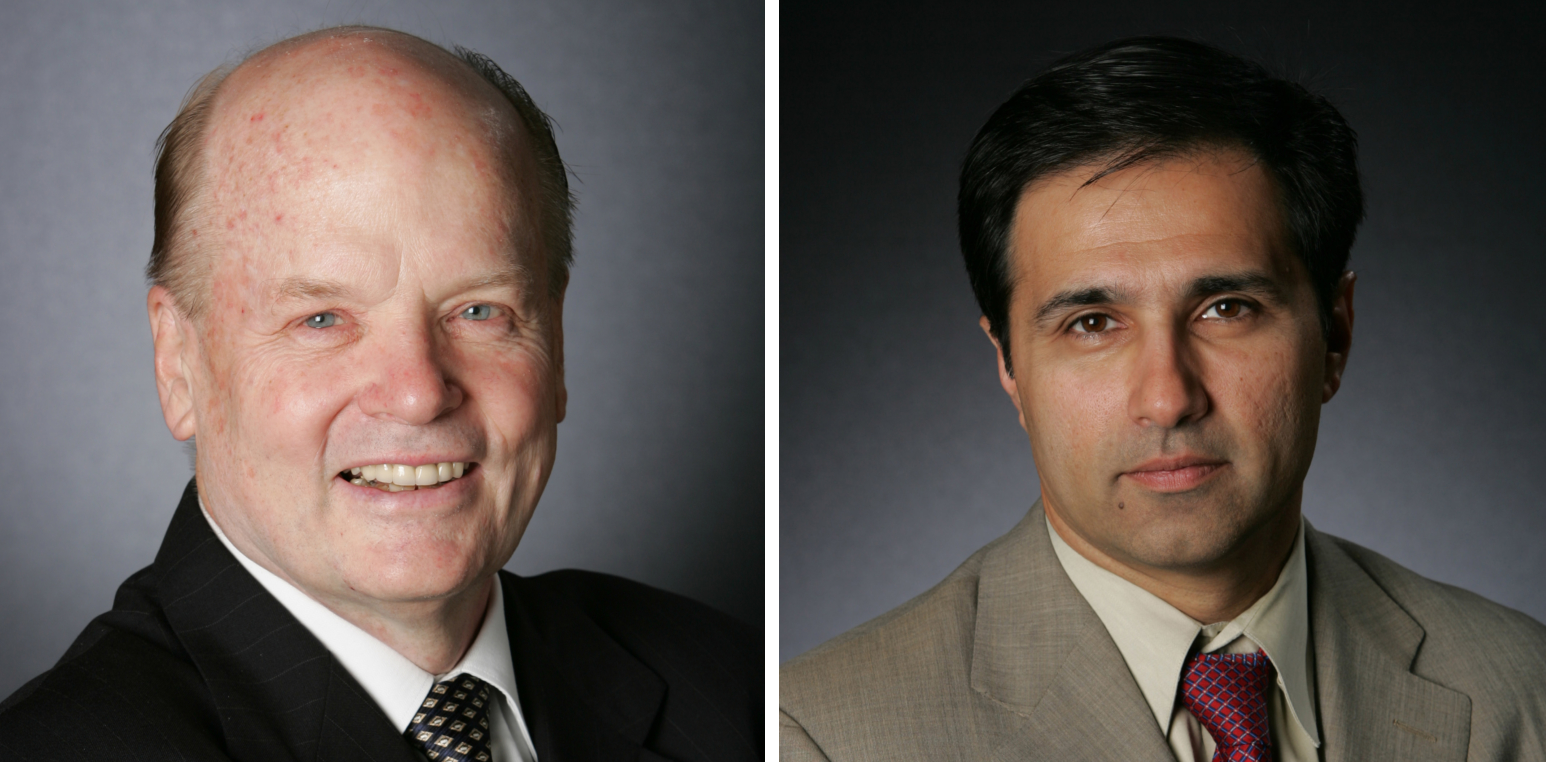Two University of Southern California researchers are among the latest to be recognized with prestigious honors by the Institute of Electrical and Electronics Engineers (IEEE). Congratulations to Professor Paul Daniel Dapkus and Professor Mark Humayun who have each won medals from the IEEE, the world’s largest technical professional organization for technology advancement.
Professor Paul Daniel Dapkus was awarded the IEEE Jun-Ichi Nishizawa Medal. Sponsored by The Federation of Electric Power Companies, Japan, the honor recognizes outstanding contributions to material and device science and technology, including practical application. Professor Dapkus is recognized for his work “for the development of metal organic chemical vapor deposition and quantum well lasers.” Dr. Dapkus is William M. Keck Chair in Engineering and a Distinguished Professor of Electrical and Computer Engineering, Chemical Engineering and Materials Science, and Physics and Astronomy. He is the co-founder and director of the The Photonics Center at USC. He is an expert in the future generation of lasers, photonic technology, fiber optics, fabrication of novel materials and structures for opto-electronic circuits and devices, and innovative materials technologies. His research group has been active in the development of photonic materials and devices over the past two decades. View the IEEE video honoring Professor Dapkus.
Professor Mark Humayun was awarded the 2020 Medal for Innovations in Healthcare Technology. Sponsored by the IEEE Engineering in Medicine and Biology Society, this award recognizes “exceptional contributions to technologies and applications benefiting healthcare, medicine, and the health sciences” and specifically honors Dr. Humayun’s contributions to treatments of retinal neurodegenerative diseases through the use of prosthetic devices. View the IEEE video honoring Dr. Humayun.
Dr. Humayun, an ophthalmology expert with a special focus on nanotechnology and the retina, is a university professor with joint appointments at the Keck School of Medicine of USC and the USC Viterbi School of Engineering. He is also director of the USC Dr. Allen and Charlotte Ginsburg Institute for Biomedical Therapeutics and co-director of the USC Gayle and Edward Roski Eye Institute, where he is an ophthalmologist. He helped to create the Argus II Retinal Prosthesis system, a medical innovation developed at USC, which is the first FDA-approved implanted device to re-establish sight in blind patients, and allows previously blind patients the ability to perceive images and movement. The innovation was manufactured by the company Second Sight Medical Products, Inc. and is the result of a close collaboration by Keck School of Medicine of USC, the USC Eye Institute, and the USC Viterbi School of Engineering. The USC Stevens Center for Innovation completed a patent license agreement for the technology with Second Sight to assist with commercializing the technology outside of the university.
The Argus II system includes a small video camera mounted on a pair of eyeglasses, a video processing unit that transforms images from the camera into wirelessly-transmitted electronic signals, and an implanted retinal prosthesis (artificial retina) to stimulate visual neurons.
To see all of this year’s IEEE honorees, visit their website.
